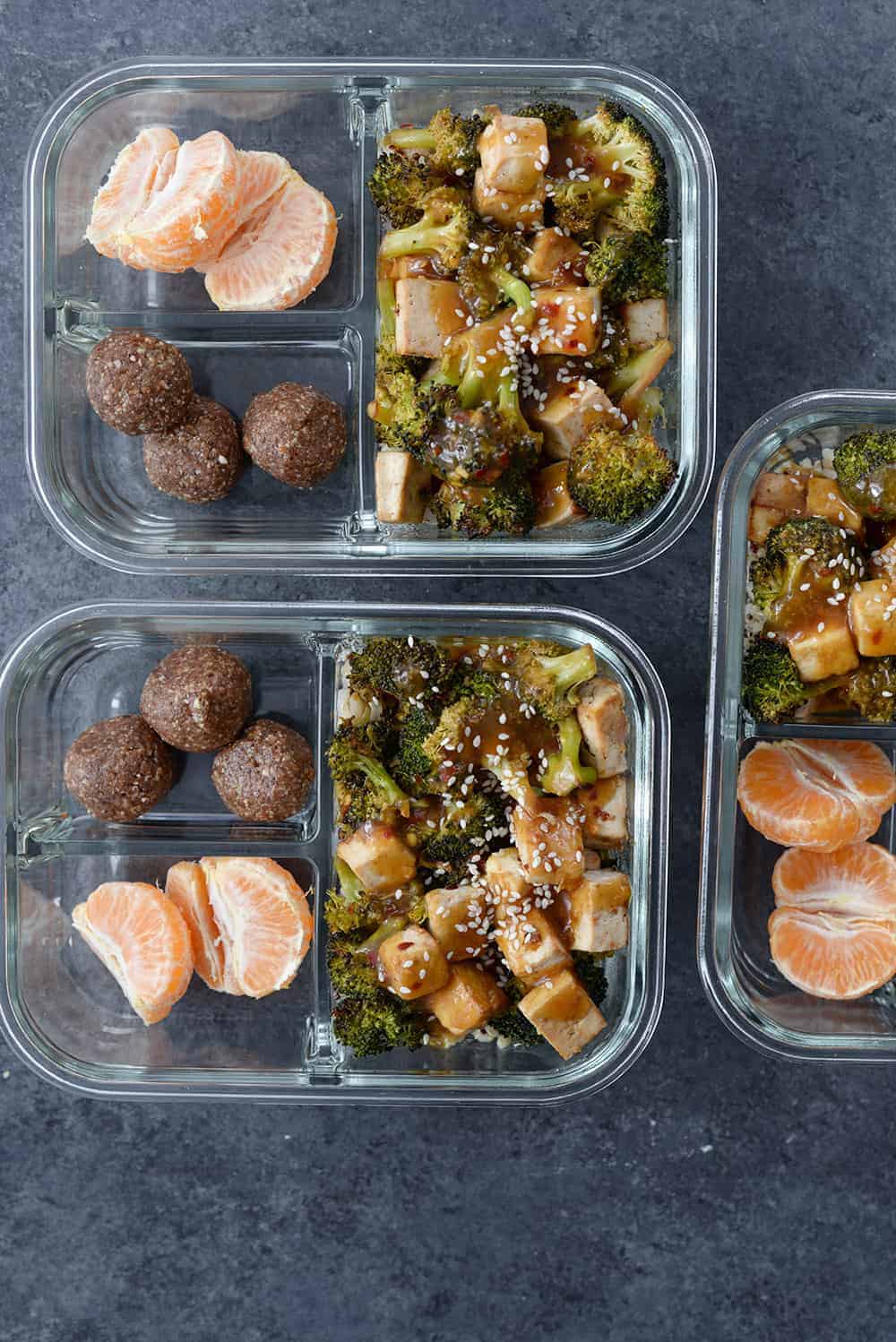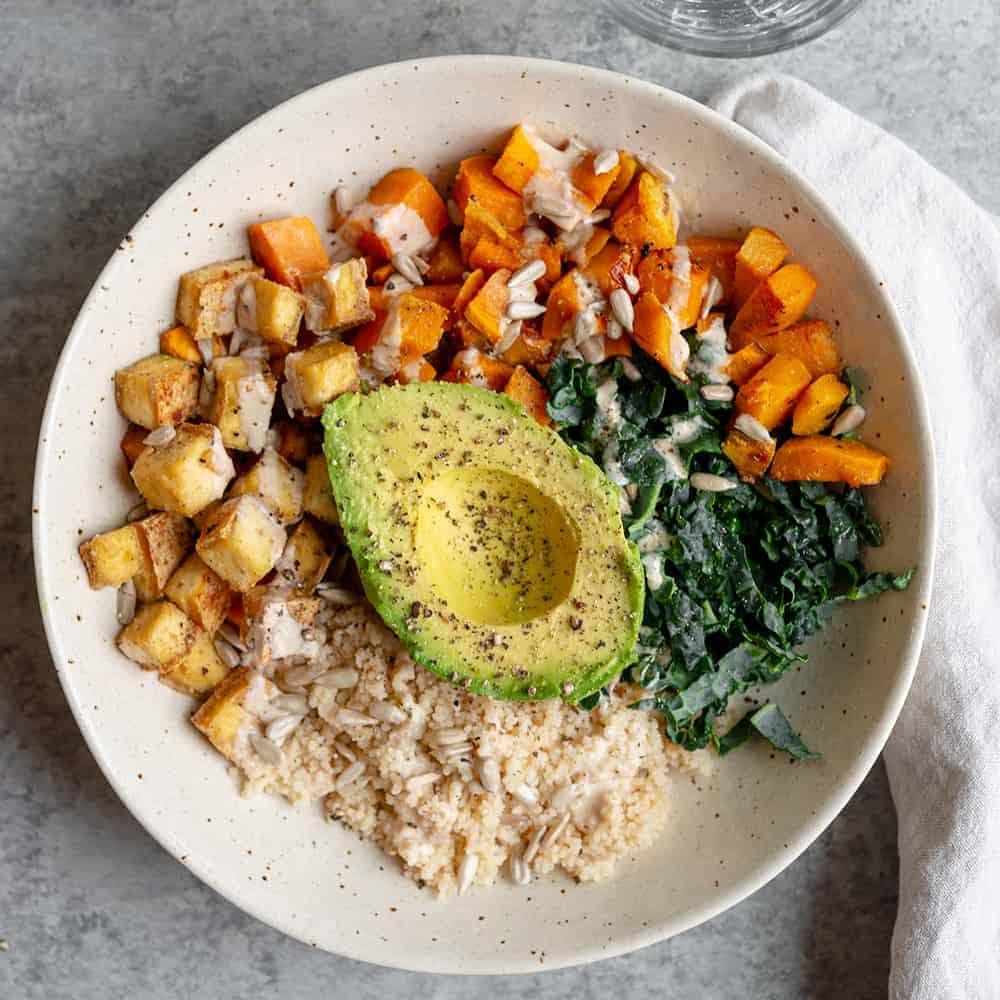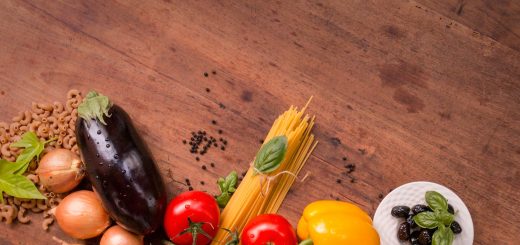What Is a Plant-Based Diet?
Maybe you’ve heard the term before but are wondering what a plant-based diet looks like and why a plant-based diet is good for you. Here’s what you need to know!
It is recommended for people to make food choices that align best with their personal goals. While giving up all animal products may not be for everyone, it’s hard to argue with eating more plants.
If you’re considering switching to a plant-based, vegan or vegetarian diet, it’s helpful to understand what eating this way means and the benefits it can offer.
What Is a Whole Foods Plant-Based Diet?

Plant Based Diet
The foundation of a plant-based diet is based predominantly – if not exclusively – on plant foods. This includes fruits, vegetables, grains, nuts, seeds and legumes (beans, peas and lentils).
For many people, this also means reducing or eliminating animal-derived foods, like meat, fish, dairy products and eggs.
Even with this foundation, there’s a lot of room for variability on a plant-centric diet. The ease of following a vegan or vegetarian diet today could be seen as both a blessing and somewhat of a curse.
Why? There’s literally a substitute for everything but this also includes heavily processed foods that offer little in the health and nutrition department.
Many people who switch to this type of diet are doing so for better health. A whole-food, plant-based diet aligns well with this goal. It’s focused on whole, minimally processed plant foods as close to their natural form as possible.
A whole-food plant-based diet generally avoids highly processed and packaged foods instead of relying on simple ingredients. This often means preparing more dishes at home. Some people choose to also exclude oil, added sugar or added salt though the research behind including certain oils in the diet, like olive oil, is mostly positive.
How to Plan a Good Vegan or Vegetarian Diet
If your primary aim is to improve the overall healthfulness of your food choices, a plant-based diet is a great choice.
What approach is best for good health? One that prioritizes nutrition and is, of course, sustainable for you. This can take some practice but it’s not hard to do and will serve you well in the long run.
When designing a good plant-based diet, it’s essential to understand which foods provide which nutrients. From here, you can plan meals that are both delicious and well-rounded.
Examples of plant-based meals that provide an array of macronutrients (carbs, fat, protein, fiber, vitamins, minerals and antioxidants) include:
- Lentil sloppy joes, a mixed green salad with nuts and a berry smoothie
- A slow-cooked white bean chilli with a side of creamed spinach and fresh fruit
- Cauliflower pesto noodles with tofu, alongside roasted broccoli and followed with a flavorful fruit-based dessert
An excellent plant-based diet will provide the majority of the nutrition you need. However, some nutrients aren’t as readily available in plants and should be supplemented.
For instance, an entirely plant-based diet generally won’t provide enough of the vitamins D and B12, iodine and omega-3 fatty acids on its own. For some people, iron may also be necessary. The good news is that supplements for these nutrients can easily be found.
Benefits of a Whole Food Plant-Based Diet

Sweet Potato Vegan Buddha Bowl
Adopting a whole food plant-based diet is super tasty and full of feel-good foods. It also offers several benefits to enrich your life for the long game.
First, whole plant foods are packed with critical nutrients that can prevent and even reverse certain chronic diseases.
Many studies have examined the correlation between plant-based diets and health, finding that eating this way can protect against obesity, type 2 diabetes, heart disease and even certain cancers.
When compared to omnivorous diets, whole food plant-based diets regularly come out on top. They may even help lengthen your lifespan.
Other benefits include cost-effectiveness, convenience and versatility. If you haven’t been used to cooking with plants up to this point, transitioning to a whole food plant-based diet is a perfect opportunity to sharpen your kitchen creativity.
Soon enough, you’ll have a personal catalog of favorite recipes you can put on rotation with little effort.
Some people may argue that eating a vegan or vegetarian diet is more expensive. But this could be true for any diet, depending on the foods you choose to incorporate.
Many staple foods are inexpensive to begin with (e.g., tofu, canned beans, frozen veggies, dry grains). With the help of meal planning, batch cooking and purchasing local and in-season produce as much as possible, extra costs of fueling your body well can be further minimized.
Let us know in the comments below if you plan on switching to a plant-based diet.



